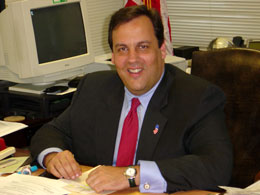Quote from:
http://shikow.blogspot.com/2008/11/10000-hours-magic-number-to-be-expert.html
"There are so many folks who say that athletes are made-up of a certain genetic predisposition,
or that Mozart was a unique diamond-in-the-rough. But is that true?
According to Malcom Gladwell's essay, Outliers, mastery of anything -
whether it's the Beatles in music or Bill Gates in the computer world - takes 10,000 hours of practice.
Greater experts, he and his colleagues found, had amassed 10,000 hours of deliberate practice by age 20;
lesser experts had amassed 5,000 hours; and serious amateurs had amassed 2,000 hours.
The only requirement for the individual is to find the money to create time for practice,
have a strong desire to commit to the work, and practice, practice, practice until they achieve success."
--shikow
Break down of the hours/weeks of practices to reach 10,000 hours on a craft:
(originated from
http://teddygotmail.pixnet.net/blog/post/24233182 )
1 hour per day- you need 27 years 4 months, 25 days
2 hours per day- you need 13 years 8 months, 15 days
3 hours per day you need 9 years 1 month, 18 days, 1 hour
4 hours per day, you need 6 years, 10 months, 10 days
5 hours per day, you need 5 years, 5 months, 25 days
6 hours a day, you need 4 years, 6 months, 26 days, and 4 hours
7 hours a day, you need 3years, 11 months,3 days, 4 hours
8 hours a day, you need 3years,5 months, 5days,
9 hours a day, you need 3years, 0 months, 16days, 1 hour
10 hours a day, you need 2 years, 9 months
11 hours a day, you need 2 years, 5 months
12 hours a day, you need 2years, 3months, 13days, 4 hours
13 hours a day, you need 2 years,1 months, 9days, 3 hours
14 hours a day, you need 1 year, 19, days, 4 hours
Have fun grinding!
Counter point of view:
While the 10,000 hours rule somewhat applies to art skill practices, it doesn't apply to all. And it's not just doing it either, it's also studying and gaining more understanding from what others achieved and observation. :) But sure enough, a person who can devote 10,000 hours on something, s/he is likely to become an expert in it.
Fun stuff i read lately.
I draw on average 6-8 hours a day, except on days that i have to travel, conventions, etc... or a few sick days.
I need to amp it up. Got a few things to catch up on.











